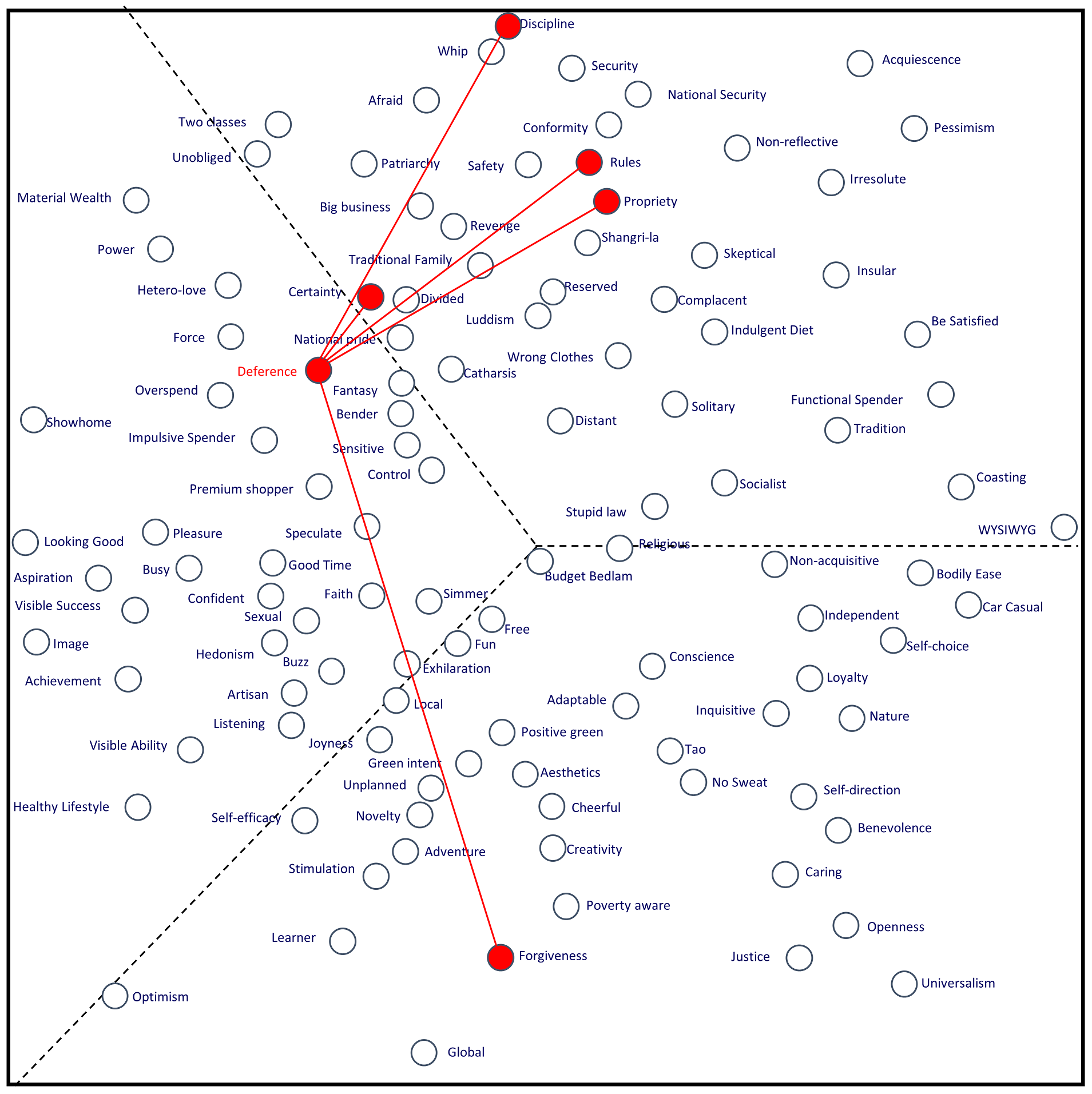

DEFERENCE
 |
I believe it is important to show respect to people in authority.
I think people should be patient.
As Queen Elizabeth II marked the longest ever reign of a British monarch (1953 - 2015, and counting), commentators attempted to characterise the second Elizabethan era as a time when deference and hierarchy had ended. We agree in part, but the data confirms that there is still a significant section of the UK society who believe that it is still important to show respect to people in authority, and that such deference plays a major role in maintaining social order and stability.
This group of deferential respondents also tends to be patient, willing to wait for others to take the lead, or initiate something new. And when someone adopts a leadership position, they like them to take their time and to not rush into changing things.
So, generally speaking they are followers rather than leaders, only really taking on an authoritative role if and when they become parents. Generally speaking, they believe that people should do what they are told, which correlates with their belief that strict discipline is in a child’s best interests.
These people crave clarity, structure and predictability. They do not like surprises. In consequence, they like there to be clear rules to live by that are shared and followed by everyone all the time. As well as expecting people in authority to behave properly, they also try to give a good impression themselves, behaving properly in public and avoiding actions that people would see as wrong. This personal philosophy is so ingrained that their behaviour is also disciplined when on their own, when nobody is watching.
Not needing to set the rules, they just need to know what the rules are and the consequences of crossing the boundaries of acceptable behaviour. Stemming from their belief in a fair, just and strict society, there is a demand for severe prison sentences if society’s rules are broken; however, they also have faith in the effectiveness of such punishment. They accept that those who have transgressed and shown remorse should be forgiven and allowed to make a fresh start after they have been penalised. Punishment is not seen as an end in itself, but serves as a way to restore order — the core motivation of people who value this attribute.
Using DeferenceDemographic Skews: 1) Over-indexed: Female, 65+, down-market. 2) Under-indexed: Male. Deference espousers also espouse other Attributes. The top five most highly correlated Attributes of Deference espousers are, in order of the strength of relationship: 1) Certainty In total those who espouse Deference also over-index significantly on 36 other Attributes. |
|
If "Deference" (or the associated attributes) are important to you and you would like to delve more deeply, contact us at mail@cultdyn.co.uk
